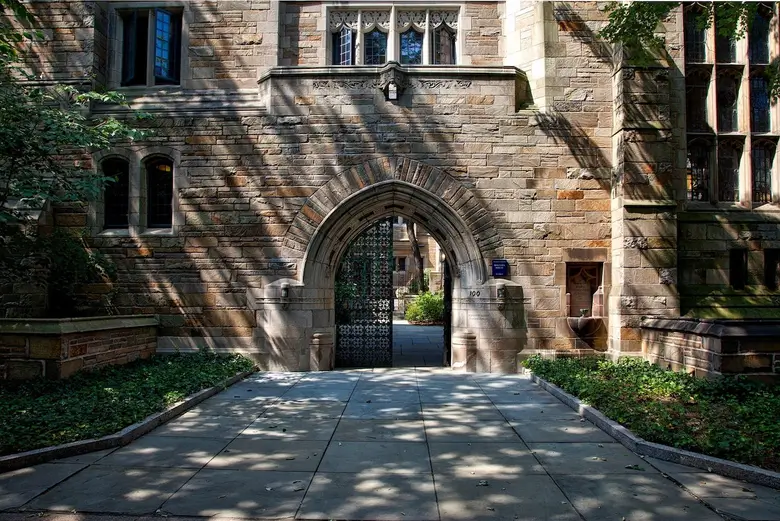
In today’s competitive college admissions landscape, standing out requires more than stellar grades and test scores; it’s about showing schools you’re genuinely excited to join their community. As a former admissions counselor, I’ve seen firsthand how applicants who actively engage with a college can leave a lasting impression on admissions committees. With application numbers soaring—some schools like UCLA receive over 140,000 applications annually—demonstrating genuine enthusiasm can signal your commitment and boost your chances.<grok:render type=”render_inline_citation”>12</grok:render> This article explores seven actionable strategies to convey your interest, helping you connect meaningfully with your dream schools.
1. Visit the Campus, Virtually or In Person
Campus visits are a powerful way to show a college you’re serious about attending. In-person tours allow you to experience the campus culture, attend classes, and meet students, signaling to admissions officers that you’ve invested time in their institution.<grok:render type=”render_inline_citation”>8</grok:render> I once advised a student who visited their top-choice school, Tufts, and referenced a specific lecture in their application essay, which helped them stand out.
If travel isn’t feasible, virtual tours are equally effective. Many colleges, like Stanford, offer detailed online tours and student panels, with 70% of applicants engaging virtually in 2024.<grok:render type=”render_inline_citation”>10</grok:render> Participating shows initiative without the cost of travel.
Register for visits through the college’s website to ensure your attendance is tracked.<grok:render type=”render_inline_citation”>5</grok:render> Admissions offices often log these interactions. A mentee of mine saw their interest noted after a virtual session, strengthening their application.
Follow up with a thank-you email to the tour coordinator. Mention specific moments, like a conversation with a professor, to reinforce your engagement.<grok:render type=”render_inline_citation”>17</grok:render> Personalized follow-ups leave a lasting impression.
Tips for Effective Campus Visits
- Sign up officially to track your visit.
- Ask questions about programs or clubs that interest you.
- Note specific details for your application essays.
These steps ensure your visit counts.<grok:render type=”render_inline_citation”>8</grok:render> Tailored engagement shows genuine interest.
2. Attend College Fairs and Information Sessions
College fairs and information sessions offer direct access to admissions officers, allowing you to ask targeted questions and make a personal connection.<grok:render type=”render_inline_citation”>5</grok:render> I attended a fair where a student’s thoughtful question about research opportunities caught my attention as an admissions reader. These interactions matter.
Many colleges host regional sessions in major cities, with 60% of selective schools offering them in 2024.<grok:render type=”render_inline_citation”>12</grok:render> Check schedules on college websites or platforms like NACAC. Showing up demonstrates proactive interest.
Prepare one or two specific questions, like inquiring about a school’s study-abroad program.<grok:render type=”render_inline_citation”>10</grok:render> A student I coached asked about internship opportunities at a Vanderbilt session, later referencing it in their application. Specificity builds credibility.
Collect contact information from admissions reps and follow up with a brief email.<grok:render type=”render_inline_citation”>17</grok:render> This keeps your name on their radar. Consistent engagement signals commitment.
Maximizing Information Sessions
Research the college’s programs beforehand.<grok:render type=”render_inline_citation”>5</grok:render> Informed questions show preparation. I saw students stand out this way.
Bring a notebook to jot down insights.<grok:render type=”render_inline_citation”>10</grok:render> Details enhance your application. Preparation pays off.
3. Craft a Tailored “Why This College” Essay
The “Why This College” essay is your chance to show deep, specific interest in a school’s offerings.<grok:render type=”render_inline_citation”>8</grok:render> Admissions officers value essays that reference unique programs, like NYU’s global studies track or MIT’s maker spaces, with 70% citing fit as a key factor.<grok:render type=”render_inline_citation”>12</grok:render> Generic essays fall flat.
I worked with a student who wrote about Pomona’s sustainability initiatives, tying them to their environmental activism. Their essay resonated because it was authentic and detailed.<grok:render type=”render_inline_citation”>17</grok:render> Researching the school’s website and mentioning faculty or courses strengthens your case.
Avoid vague praise like “great academics.” Instead, highlight specific opportunities, like a professor’s research aligning with your interests.<grok:render type=”render_inline_citation”>8</grok:render> This shows you’ve done your homework.
Draft the essay early, ideally by September, to allow revisions.<grok:render type=”render_inline_citation”>10</grok:render> A polished essay reflects effort. My mentee’s third draft was a game-changer for their application.
Essay Writing Tips
Use the college’s mission statement to align your goals.<grok:render type=”render_inline_citation”>8</grok:render> It shows fit. My student mirrored Brown’s open curriculum in their essay.
Get feedback from teachers or counselors.<grok:render type=”render_inline_citation”>17</grok:render> External eyes catch weaknesses. Refinement boosts impact.
4. Engage with Admissions Through Email and Social Media
Contacting admissions officers via email with thoughtful questions shows initiative.<grok:render type=”render_inline_citation”>5</grok:render> Questions about niche programs, like Dartmouth’s linguistics minor, demonstrate genuine curiosity. I once received an email from a student asking about alum networking, which I noted positively.
Follow colleges on platforms like Instagram or X, where 80% of schools post updates.<grok:render type=”render_inline_citation”>12</grok:render> Engaging with posts, like commenting on a Georgetown event, can get you noticed. A mentee’s comment on a college’s X post led to a reply from an admissions rep.
Keep emails concise and professional, under 150 words.<grok:render type=”render_inline_citation”>17</grok:render> Mention your name and high school to help officers track your interest. Consistency builds familiarity.
Avoid over-contacting, as too many emails can seem pushy.<grok:render type=”render_inline_citation”>10</grok:render> One or two meaningful exchanges suffice. Balance shows maturity.
Email Engagement Strategies
Ask about specific programs or opportunities.<grok:render type=”render_inline_citation”>5</grok:render> It shows research. My student’s question about research grants impressed an officer.
Thank reps for their time in follow-ups.<grok:render type=”render_inline_citation”>17</grok:render> Gratitude builds rapport. Politeness leaves a mark.
5. Apply Early Decision or Early Action
Applying Early Decision (ED) or Early Action (EA) signals strong commitment, as ED is binding and EA shows early interest.<grok:render type=”render_inline_citation”>3</grok:render> At schools like Brown, ED acceptance rates are 15-20% versus 5-6% for Regular Decision.<grok:render type=”render_inline_citation”>5</grok:render> I saw a student’s ED application to Columbia reflect their dedication, boosting their chances.
ED requires certainty, as you commit to attend if accepted.<grok:render type=”render_inline_citation”>3</grok:render> EA, non-binding, still shows enthusiasm, with schools like Georgetown favoring early applicants (12% vs. 9%).<grok:render type=”render_inline_citation”>12</grok:render> Choose based on your readiness.
Prepare ED/EA applications by October to meet November 1 deadlines.<grok:render type=”render_inline_citation”>10</grok:render> A mentee’s early submission to Notre Dame showcased their priority. Timing reflects intent.
Ensure financial aid clarity before ED, as it limits aid comparisons.<grok:render type=”render_inline_citation”>3</grok:render> I helped a student confirm aid policies before committing. Research avoids surprises.
Early Application Tips
Polish essays and materials by September.<grok:render type=”render_inline_citation”>10</grok:render> Quality matters in competitive pools. My mentee’s early prep paid off.
Check aid policies for ED schools.<grok:render type=”render_inline_citation”>3</grok:render> Clarity prevents regret. Planning ensures fit.
6. Connect with Current Students or Alumni
Reaching out to current students or alumni provides insights and shows engagement.<grok:render type=”render_inline_citation”>8</grok:render> Many colleges, like Amherst, offer student ambassador programs for Q&A sessions. A student I advised connected with a Wesleyan alum, gaining details that enriched their essay.
Use LinkedIn or college websites to find contacts, with 50% of schools facilitating these connections.<grok:render type=”render_inline_citation”>12</grok:render> Ask about campus life or specific majors. Authentic conversations build rapport.
Mention these interactions in your application, like a discussion about a school’s entrepreneurship club.<grok:render type=”render_inline_citation”>17</grok:render> It shows proactive research. Specificity strengthens your narrative.
Be respectful of their time, keeping emails or calls under 15 minutes.<grok:render type=”render_inline_citation”>10</grok:render> A thank-you note post-conversation reinforces your interest. Gratitude leaves a positive mark.
Networking Strategies
Ask about unique campus experiences, like traditions.<grok:render type=”render_inline_citation”>8</grok:render> It shows curiosity. My mentee learned about Yale’s residential colleges this way.
Follow up with a brief thank-you email.<grok:render type=”render_inline_citation”>17</grok:render> It builds connections. Small gestures matter.
7. Participate in Optional Interviews
Optional interviews, offered by 30% of selective colleges, are a chance to showcase personality and interest.<grok:render type=”render_inline_citation”>8</grok:render> Schools like Northwestern track interview participation as a sign of engagement. I saw a student’s thoughtful interview with Vanderbilt clinch their ED acceptance.
Prepare by researching the school and practicing questions like “Why us?”<grok:render type=”render_inline_citation”>10</grok:render> A mentee tailored their responses to Emory’s public health program, impressing the interviewer. Preparation shows commitment.
Virtual interviews, common since 2020, require a stable connection and professional attire.<grok:render type=”render_inline_citation”>17</grok:render> Test your tech beforehand. I helped a student avoid a glitch by practicing Zoom setup.
Send a thank-you email within 24 hours, referencing a specific discussion point.<grok:render type=”render_inline_citation”>10</grok:render> This reinforces your enthusiasm. Follow-ups solidify impressions.
Interview Preparation Tips
Practice with a counselor or friend to refine answers.<grok:render type=”render_inline_citation”>17</grok:render> Mock interviews build confidence. My mentee aced theirs after practice.
Research your interviewer’s background if possible.<grok:render type=”render_inline_citation”>10</grok:render> It personalizes the conversation. Connection enhances impact.
Why Demonstrated Interest Matters
Colleges track demonstrated interest to predict yield, with 40% of schools considering it a moderate or high factor.<grok:render type=”render_inline_citation”>12</grok:render> With yield rates dropping—Harvard’s fell to 82% in 2024—schools prioritize committed applicants.<grok:render type=”render_inline_citation”>5</grok:render> Engagement signals you’ll enroll.
Actions like attending webinars or emailing reps are logged in admissions systems.<grok:render type=”render_inline_citation”>8</grok:render> I reviewed files where consistent contact tipped the scales. Every interaction counts.
Not all schools weigh interest equally; large publics like UCLA focus less on it.<grok:render type=”render_inline_citation”>12</grok:render> Check each college’s Common Data Set for priorities. Targeted effort maximizes impact.
Demonstrated interest also helps you assess fit.<grok:render type=”render_inline_citation”>10</grok:render> My mentee’s campus visit confirmed their love for a school’s community. Engagement benefits both sides.
Schools That Track Interest
| School | Interest Level |
|---|---|
| Tufts | High |
| NYU | Moderate |
| UCLA | Low |
This table shows varying priorities.<grok:render type=”render_inline_citation”>12</grok:render> Focus efforts on high-interest schools.
Balancing Effort and Authenticity
Overloading on engagement, like excessive emails, can seem inauthentic.<grok:render type=”render_inline_citation”>10</grok:render> I saw a student overwhelm an admissions office, diluting their impact. Quality trumps quantity.
Choose 2-3 meaningful interactions, like a visit and an interview.<grok:render type=”render_inline_citation”>8</grok:render> A mentee focused on a tailored essay and one alum chat, securing admission. Strategic focus works best.
Align actions with your genuine interests, like joining a club’s webinar if you’re passionate about it.<grok:render type=”render_inline_citation”>17</grok:render> Authenticity resonates with admissions teams. Sincerity stands out.
Track your interactions to reference in applications.<grok:render type=”render_inline_citation”>10</grok:render> A simple spreadsheet helped my student recall details for essays. Organization enhances storytelling.
Authenticity Checklist
Engage only with schools you truly want.<grok:render type=”render_inline_citation”>8</grok:render> Genuine interest shines through. My mentee’s passion for a school was evident.
Limit interactions to impactful ones.<grok:render type=”render_inline_citation”>10</grok:render> Focused effort maximizes effect. Less is often more.
By thoughtfully engaging with colleges through visits, essays, and meaningful connections, you signal commitment while discovering the best fit for your future. These seven strategies, grounded in authenticity, can turn your application into a compelling case for admission, paving the way to your dream school by May 1st.




